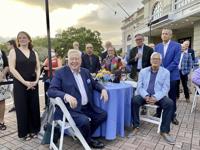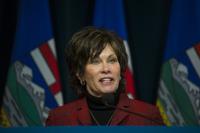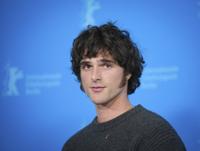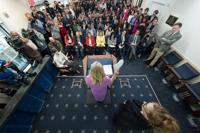In the early 1980s, soon after graduating from college, Roy Cockrum was trying to make it as an actor in New York. He was hanging on by his fingernails, getting paid $40 a show for two supporting roles in the off-Broadway comedy “Vampire Lesbians of Sodom.”
To cover his rent, Cockrum would pick up extra cash doing financial-document proofreading at 2 a.m. Risk factors, operating margins — the terms washed over him endlessly. “I was both without money — and around money a lot,” he recalls.
Then, in 2014, at age 58, Cockrum’s luck abruptly changed.
After decades of character-actor obscurity, Cockrum won America’s Powerball lottery, collecting a lump-sum check for $153 million. Instead of spending it all on himself, he decided to take half his after-tax winnings, about $60 million, and set up a foundation focused on helping U.S. nonprofit theaters rediscover their boldness.
Over the past quarter-century, 95 people have won lump-sum payouts of at least $100 million by playing the Powerball lottery. More than 10% have formed foundations, according to a Chronicle analysis of ProPublica records. These foundations support everything from medical research to college scholarships for low-income students.
In this rarified group, the Roy Cockrum Foundation stands out. It has given away about $25 million, funding 47 theatrical productions across the United States. This spring, a Cockrum-financed play, “Prayer for the French Republic,” was a finalist in the Tony Awards’ best-play category.
What makes Roy Cockrum unique among these accidental philanthropists? Lynne Meadow, artistic director of the Manhattan Theatre Club, says, simply: “He’s a man of the theater.”
What’s more, she says, Cockrum has a gift for spotting potential and inspiring others with his support. “I regard him as exactly what a philanthropic soul should be,” she says.
The first stirring of Cockrum’s new role took shape in a 2004 visit to London, when he saw a brilliant performance of “His Dark Materials” at the ��ɫֱ�� Theatre. “It was huge; it had changing sets every second, and a young audience that leapt to their feet at the end,” he recalls.
“I made a mental note that if I ever had two nickels to rub together, I would try to help American theaters do something like that.”
That moment arrived in June 2014 with Cockrum’s lottery win. Cockrum quickly reached out to Benita Hofstetter Koman, a Washington, D.C., theater consultant whom he’d known since they both were acting apprentices in Louisville, Kentucky. “I think I have a really good idea,” he wrote. “Could you come to Tennessee tomorrow? I’m sending a plane for you.”
A plane? That didn’t square with the cash-strapped Cockrum she knew. Curious to see what was up, Koman took him up on the offer. Over dinner at a restaurant in his hometown of Knoxville, Tennessee, she learned about his windfall — and his desire to award big grants that could bring brilliant theatrical projects to life, even if ticket sales and donor support weren’t enough.
“It was jaw-dropping,” Koman recalled. Her own experience as a contractor with the ��ɫֱ�� Endowment for the Arts gave her excellent insights into regional theaters across the United States. When Cockrum asked her if she’d like to be the foundation’s executive director and sole employee, she said yes.
“I had a very steep learning curve,” Cockrum recalls. There were moments when he considered going the donor route instead, which would have been simpler and more tax efficient. “But I didn’t want to be at the whim of other people’s priorities.”
By early 2015, Cockrum and Koman were ready to start calling on the U.S. theater community. In meetings with artistic directors, Cockrum often asked: “Is there a project you’ve dreamed of doing, but you assumed you couldn’t afford?”
Theater executives melted at his invitation. An early breakthrough came in 2015, when Robert Falls, artistic director of Chicago’s Goodman Theatre, confided that he had been hoping for years to do a staged version of Chilean novelist Roberto Bolaño’s 900-page novel 2666. Falls had gone so far as to buy the English-language dramatic rights to the book, which would soon expire if unused.
Ordinary business logic couldn’t justify staging this sprawling tale of literary quarrels, boxing, Prussian nobility, and quite a few murders. It would require more than a dozen actors whizzing through 88 roles. Each night’s run might take five hours. When Falls finished explaining this fragile dream, Cockrum shot back: “That’s exactly what we’re looking for!”
And at that point, Falls recalls, “I got a little tearful.”
When the play opened in early 2016, with $1 million of funding from the Cockrum Foundation, critics found it astonishing but “recklessly ambitious.” Even so, Cockrum says he regards “2666” as “the model for how the foundation works.” By his standard of art for its own sake, “it was perfect. People came from all over the world to see it.”
Over the past decade, the Cockrum Foundation has seen at least 90 percent of its grants deliver the expected results. There have been a few missteps along the way, but nothing too disruptive. The CoVID-19 pandemic wrecked plans for an April 2020 opening of a stage adaptation of James Agee’s novel “Knoxville: Summer of 1915.” But that show finally made its debut in Sarasota, Florida, two years later, albeit with additional financial support.
“Whether a play runs for two weeks or two years is not part of our mission,” Cockrum says. “That’s up to the artists; it’s not up to us. We’re making things happen that people assumed they couldn’t do. When they happen, we’ve succeeded.”
“We prefer large casts,” Cockrum defiantly adds. “We want to employ as many people as we can: as many artists and designers and actors.” After all, Cockrum knows what it’s like to live on the edge of the professional theater world, hoping that a big new play might bring a few weeks’ work.
Many of the Cockrum Foundation’s grants help bring drama’s classics back to the stage — ranging from Shakespeare’s less famous plays to an assortment of Greek tragedies. That’s a boon for artistic directors eager to stretch beyond “Hamlet” and “Romeo & Juliet.”
Plays with strong social justice themes also win support from the Cockrum Foundation. These include a trilogy about the 1955 murder of Black teenager Emmett Till, as well as “Between Two Knees,” a fierce comedy about Native American land rights.
One unexpected headache for Cockrum and other big lottery winners: scammers who create fake narratives — using the winners’ names — to fool gullible people into revealing their bank information while applying for bogus grants. “It’s an ongoing scam by criminals that I have no power to stop,” Cockrum says. “Please let people know that I am not giving away $300,000 to everyone in America.”
Thanks to a careful investment strategy and strong financial markets, the foundation has grown its assets slightly in its first decade, even while making steady grants and not taking in new cash. Optimistic that his foundation will have a long future, Cockrum says its charter calls for staying open until the year 2113.
“I don’t know where theater will be in 200 years,” Cockrum says, “but we hope it will be around for another hundred.”
_____
George Anders is editor-at-large at the Chronicle of Philanthropy, where you can read the . This article was provided to The Associated Press by the Chronicle of Philanthropy as part of a partnership to cover philanthropy and nonprofits supported by the Lilly Endowment. The Chronicle is solely responsible for the content. For all of AP’s philanthropy coverage, visit .








































